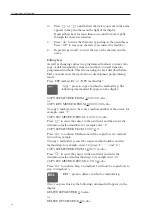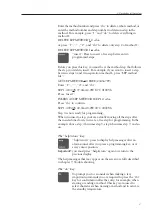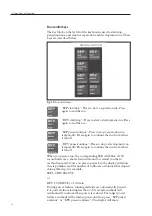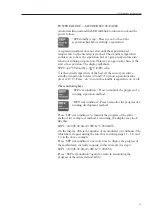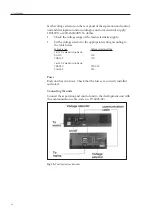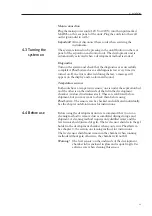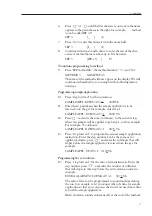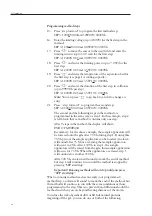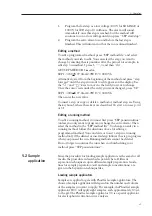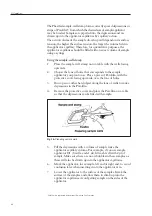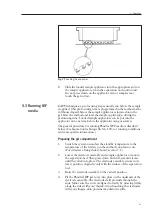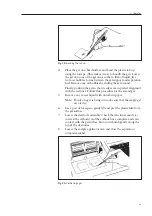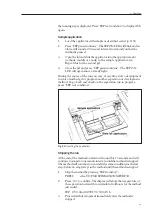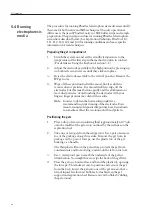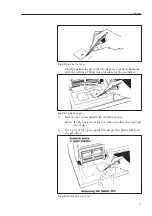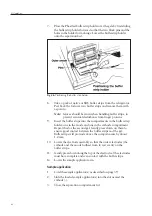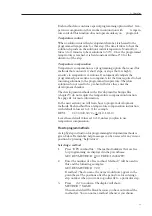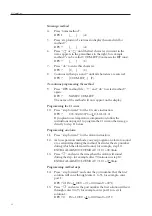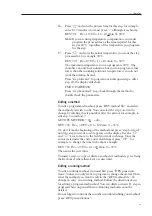
38
Programming method steps.
15.
Press ”step forward” to program the first method step:
SEP 3.1 0000V 00.0mA 0.0W 00°C 0000Vh
16.
Enter the limiting voltage (up to 2000V) for the first step in the
method:
SEP 3.1 2000V 00.0mA 0.0W00°C 0000Vh
17.
Press ” ” to move the cursor to the next field and enter the
limiting current (up to 50.0 mA) for the first step:
SEP 3.1 2000V 02.5mA 0.0W 00°C 0000Vh
18.
Press ” ” and enter the limiting power (up to 7.0 W) for the
first step:
SEP 3.1 2000V 02.5mA 3.5W 00°C 0000Vh
19.
Press ” ” and enter the temperature of the separation bed for
the first step (see page 14, cooling capacity):
SEP 3.1 2000V 02.5mA 3.5W 15°C 0000Vh
20.
Press ” ” and enter the duration of the first step in volthours
(up to 9999 Vh per step):
SEP 3.1 2000V 02.5mA 3.5W 15°C 0500Vh
Note:
You can press ” ” to go back to a field to change an
entry.
21.
Press ” step forward” to program the second step:
SEP 3.2 0000V 00.0mA 0.0W 00°C 0000Vh
The second and the following steps in the method are
programmed in the same way as step 1. In this example, step 2
is left blank, that is, method 3 contains only one step.
After 9 steps in the method, the display will show:
END OF METHOD
In summary, for the above example, the sample applicators will
be lowered onto the gels after 75 Vh during step 1. During this
75 Vh period, the sample applicators can be loaded. An alarm
will sound after 73 Vh as a warning that sample application
will occur in 2 Vh. After 150 Vh in step 1, the sample
applicators will be raised from the gels, thus sample application
will occur for 75 Vh. When the applicators are raised, step 1
will continue for another 350 Vh.
After 500 Vh, an alarm will sound to mark the end of method,
but step 1 will continue to run until the method is stopped by
pressing ”SEP start/stop”.
Important! Running methods will not stop until you press
”SEP start/stop”.
When a running method reaches an empty (not programmed)
method step, an alarm will sound to mark the end of the method, but
the method will continue to run with the same conditions as those
programmed in the step. This is to prevent band diffusion should the
method end when you are beyond hearing distance of the alarm.
To reduce the risk of gradient drift or SDS-denatured proteins
migrating off the gel, you can do one or both of the following:
▼
▼
▼
▼
▼
5. Operation



